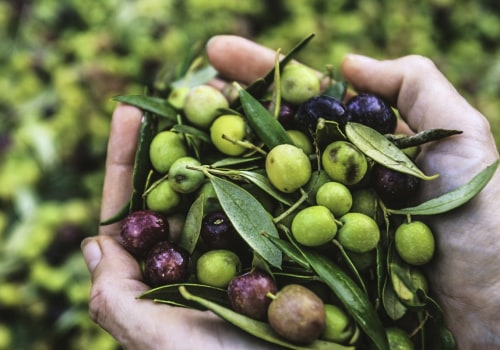Benefits of non-organic foods And while organic foods have a reputation for being healthy and nutritious, studies show that there is actually very little difference in nutritional value between organic and conventional foods. According to data from the USDA, organic foods have less pesticide residues than conventionally grown products. However, the quantities of both types of products are within the safe consumption level. And it's not clear if the pesticides used in organic agriculture are safer than the non-synthetic pesticides used in conventional agriculture.
The verdict on pesticides and fertilizers in terms of the long-term impact on health has not yet been delivered on pesticides and fertilizers. There are many other variables in the environment. It's hard to say that the peach pesticide was the root cause of a health problem, McManus says. According to the definition established by the National Organic Program of the United States Department of Agriculture, organic crops are grown without applying herbicides, pesticides or fertilizers, and animals are raised following humane practices.
Organic food enthusiasts seem to value food safety and their own ethical identity, which encompasses topics such as the environment and animal welfare. Surveys also show that most consumers choose organic foods to avoid pesticides. As expected, many belong to homes with children. While organic products contain fewer synthetic pesticide residues, non-organic products have levels well below safety standards and pose minimal risk to humans.
In fact, the vast majority of exposure to pesticides occurs through non-food routes in the home and workplace. Consumers' willingness to pay a premium for organic products reflects their trust in the message transmitted by the organic label. While there is no way to guarantee, from purchase or consumption, whether the organic attributes are truly maintained, the perceived benefit of organic food outweighs rational thinking. McManus says he doesn't recommend organic foods to people, but that he'll talk to them about it if they're concerned about pesticides.
And some people choose organic foods not for health reasons, but because they think they taste better. Discover the difference between organic foods and their traditionally grown counterparts when it comes to nutrition, safety and price. Eating organic foods can reduce exposure to artificial chemicals, added hormones, and antibiotic-resistant bacteria. The lower incidence of these diseases could be attributed to other factors, such as the fact that people who can afford to eat organic food regularly may have healthier habits in general when it comes to diet and exercise, for example.
Older observational studies suggest that organic foods may reduce the risk of allergies and eczema in children and infants. In addition, animal studies show that organic diets can benefit growth, reproduction and the immune system (2). Try buying organic versions of foods from the Dirty Dozen list, published every year by the Environmental Working Group (EWG). Several previous studies have found that organic foods generally contain higher levels of antioxidants and certain micronutrients, such as vitamin C, zinc and iron (4, 5, 6,.
There isn't enough strong evidence available to show that eating organic products provides health benefits compared to regular foods. Some data show the possible health benefits of organic foods compared to foods grown using the usual (conventional) process. .



